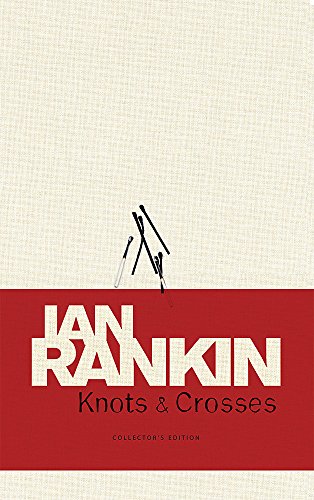

I wouldn’t want to make any huge claims for it – but it’s not bad. That’s a passage I just found after opening the book at random. What would she know about John Rebus? And would she be willing to tell? They were still friends, after all, her and him. Sure there are a few purple passages, but most of the prose is taut, pacey and rhythmical:īut they worked for their money, worked hard at building up contacts, squeezing into nooks and crannies, stepping on toes. Even Rankin has been a little unfair to his early work. Someone going under the monicker MeAlanPartridge complained: “Knots and Crosses is the worst one! It should be called Cliche City.” Others - fans of the later books – advised us not to read it.

But a few commenters on the Reading group have added worse criticisms. “Overreaching” sounds like a forgivable sin. I was a young man in love with language, striving for a voice and sometimes overreaching.” I’m guessing it was a word I’d only just learned in 1985, and I was keen to show it off. The sky is described as being ‘dark as Wagnerian opera’, while the phrase ‘ the manumission of dreams’ sent me (in 2005) to a dictionary. He thinks like the student/novelist who created him, rather than a real cop.

In a 2005 introduction to Knots and Crosses, the author says that “rereading the book now, I find myself blushing at the number of literary puns and references … Rebus himself is too well read, quoting from Shakespeare and passionate about Dostoevsky. The need to keep things moving forward and following the right tracks, rather than the psychology of the people in the scene, would sometimes dictate the action. He’s noted that Knots and Crosses was led more by plot than character. Rankin has also expressed more literary concerns about his earlier books.


 0 kommentar(er)
0 kommentar(er)
